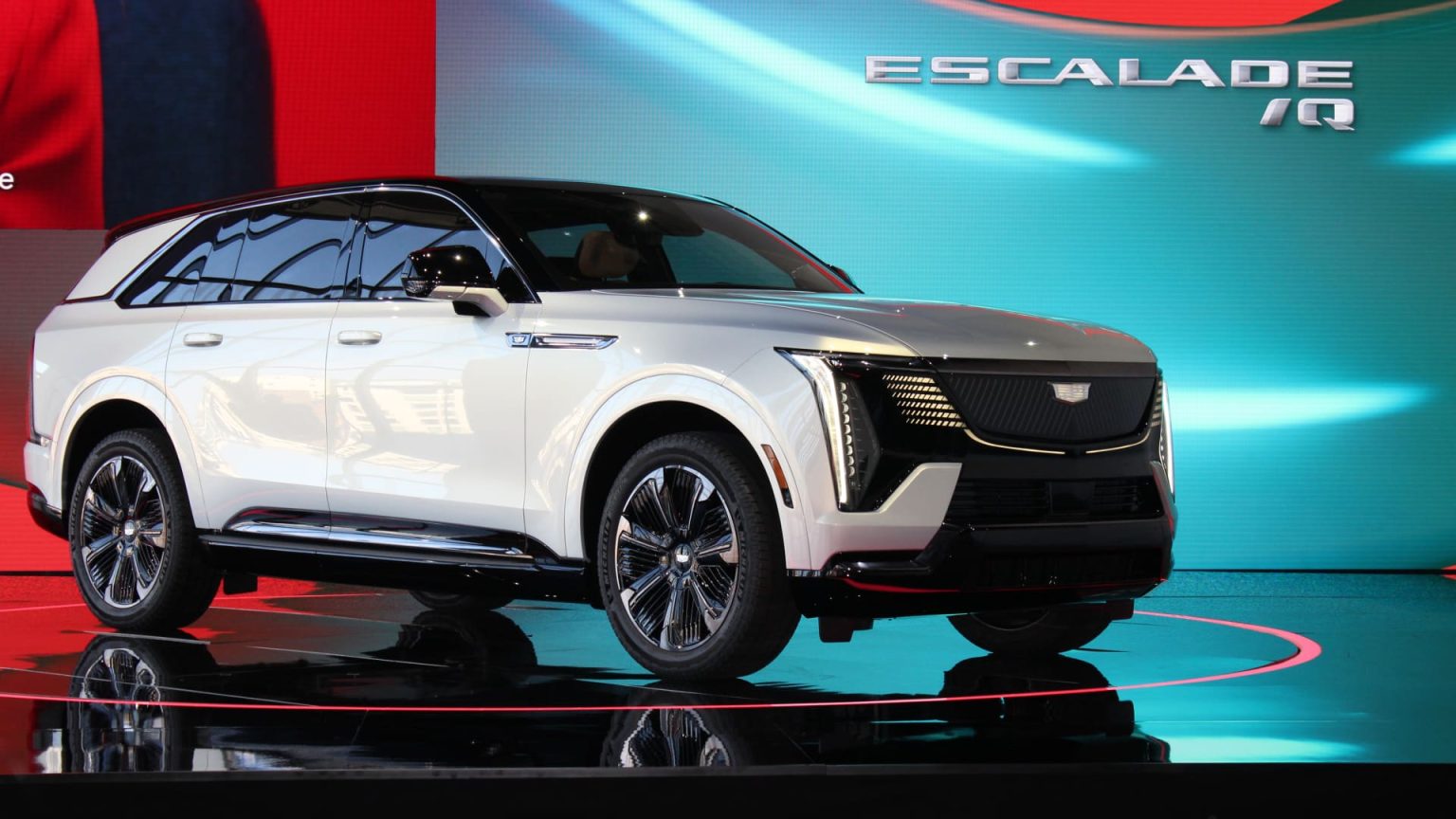Cadillac is setting ambitious goals for its electric vehicle (EV) sales, projecting that approximately one-third of its U.S. sales will consist of all-electric vehicles in the current year. This strategy aligns with the launch of new electric models, including the Cadillac Escalade IQ and the Optiq crossover. Despite facing challenges related to consumer adoption and market dynamics, the luxury automotive brand remains committed to expanding its electric offerings to reach a broader customer base, aiming for a 30% to 35% share of its total domestic sales by 2025.
| Article Subheadings |
|---|
| 1) Cadillac’s Ambitions in the EV Market |
| 2) New Electric Models: Escalade IQ and Optiq |
| 3) A Shift in Strategy and Market Response |
| 4) Competitive Landscape in the EV Segment |
| 5) Technological Innovations and Future Outlook |
Cadillac’s Ambitions in the EV Market
Cadillac, a luxury division of General Motors, is placing significant emphasis on electric vehicles (EVs) as part of its future strategy. The company predicts that around 30% to 35% of its sales in the United States will be composed of all-electric models by 2025, which represents a sizable increase from the previous year when EVs accounted for 18% of its sales. This ambitious forecast comes at a time when the general market for EVs is growing but has not reached the anticipated adoption rates. Cadillac’s director of marketing, Brad Franz, stated that the brand is poised to take advantage of the momentum in the EV sector to foster business growth rather than merely redistributing sales from traditional gas-powered vehicles.
New Electric Models: Escalade IQ and Optiq
As part of its EV expansion, Cadillac has introduced several new models, including the Escalade IQ and the Optiq. The Escalade IQ, starting at approximately $130,000, is noted for being the largest all-electric SUV currently available, setting a new benchmark in the market. This model is designed to appeal to a high-end consumer base while capitalizing on the Escalade’s established reputation. The Optiq, priced around $55,000, is positioned as an entry-level electric crossover, intended to attract a wider audience as more consumers look to switch from traditional vehicles. Both models reflect Cadillac’s strategy of introducing high-quality, luxury EVs while maintaining ties to their renowned internal combustion vehicles.
A Shift in Strategy and Market Response
Cadillac’s strategic direction includes a notable shift away from its earlier goal of exclusively producing electric vehicles by 2030. The company has recognized that the pace of consumer adoption is slower than anticipated, prompting them to maintain a diverse portfolio that integrates both electric and gas-powered vehicles. According to analysts, as well as figures from automotive data firm Cox Automotive, EV sales in the United States are experiencing challenges, with actual sales falling short of initial expectations. The combination of these factors highlights the need for flexibility in Cadillac’s approach to ensure it can meet market demands while also progressing toward its long-term goals. Franz emphasized that the company’s intent is to complement their gasoline offerings with EVs, thus providing more choices for consumers.
Competitive Landscape in the EV Segment
The EV landscape is increasingly competitive, with numerous manufacturers vying for market share. Cadillac’s competitors include several well-established brands, as well as emerging players looking to capture the electric segment. The brand is particularly focused on differentiating itself through luxury and technological advancements. For instance, the Optiq will be partnering with Dolby Laboratories to introduce cutting-edge surround sound technology across its lineup, including the newly launched models. Such features are not just about luxury; they reflect a broader trend in the automotive industry to enhance the overall driving experience through technology.
Technological Innovations and Future Outlook
Technological innovation is at the forefront of Cadillac’s strategic vision. The incorporation of advanced sound systems, as well as driver-assistance technologies like GM’s Super Cruise, showcases the brand’s commitment to enhancing user experience. Cadillac’s decision to amplify EV offerings is not isolated from wider trends in the automotive industry, where brands are increasingly focused on sustainability and reducing carbon footprints. As Cadillac continues to refine its EV strategy, the automaker remains hopeful that consumer demand will evolve, eventually leading to a more robust acceptance of electric vehicles across the luxury market.
| No. | Key Points |
|---|---|
| 1 | Cadillac aims for 30%-35% of its sales to be electric by 2025. |
| 2 | New models include the Escalade IQ and Optiq, catering to differing consumer needs. |
| 3 | Cadillac adjusts its EV strategy, balancing electric and gasoline offerings. |
| 4 | The competitive EV market requires differentiation through luxury and technology. |
| 5 | Technological innovations like the Dolby partnership enhance Cadillac’s EV offerings. |
Summary
Cadillac’s ambitious aims to significantly boost its electric vehicle sales underscore its intent to adapt to changing consumer preferences and market dynamics. The brand’s strategy to diversify its offerings by introducing new models like the Escalade IQ and Optiq positions it uniquely within an increasingly competitive electric vehicle landscape. As Cadillac navigates the challenges associated with slower-than-expected EV adoption, its focus on luxury, features, and technological advancements will likely shape its success in redefining the luxury electric vehicle market in the coming years.
Frequently Asked Questions
Question: What is the Cadillac Escalade IQ?
The Cadillac Escalade IQ is an all-electric SUV that represents the brand’s commitment to entering the luxury electric vehicle market. It boasts advanced technology, significant size, and a starting price of approximately $130,000.
Question: How does Cadillac plan to achieve its EV sales target?
Cadillac aims to achieve its target by expanding its EV lineup, which includes the Escalade IQ and Optiq, while balancing both electric and internal combustion vehicle offerings to meet customer demand.
Question: What features differentiate Cadillac’s EVs from competitors?
Cadillac’s EVs focus on luxury elements, advanced technology such as Dolby Atmos sound systems, and unique design cues that align with the brand’s heritage, setting them apart from other offerings in the market.


